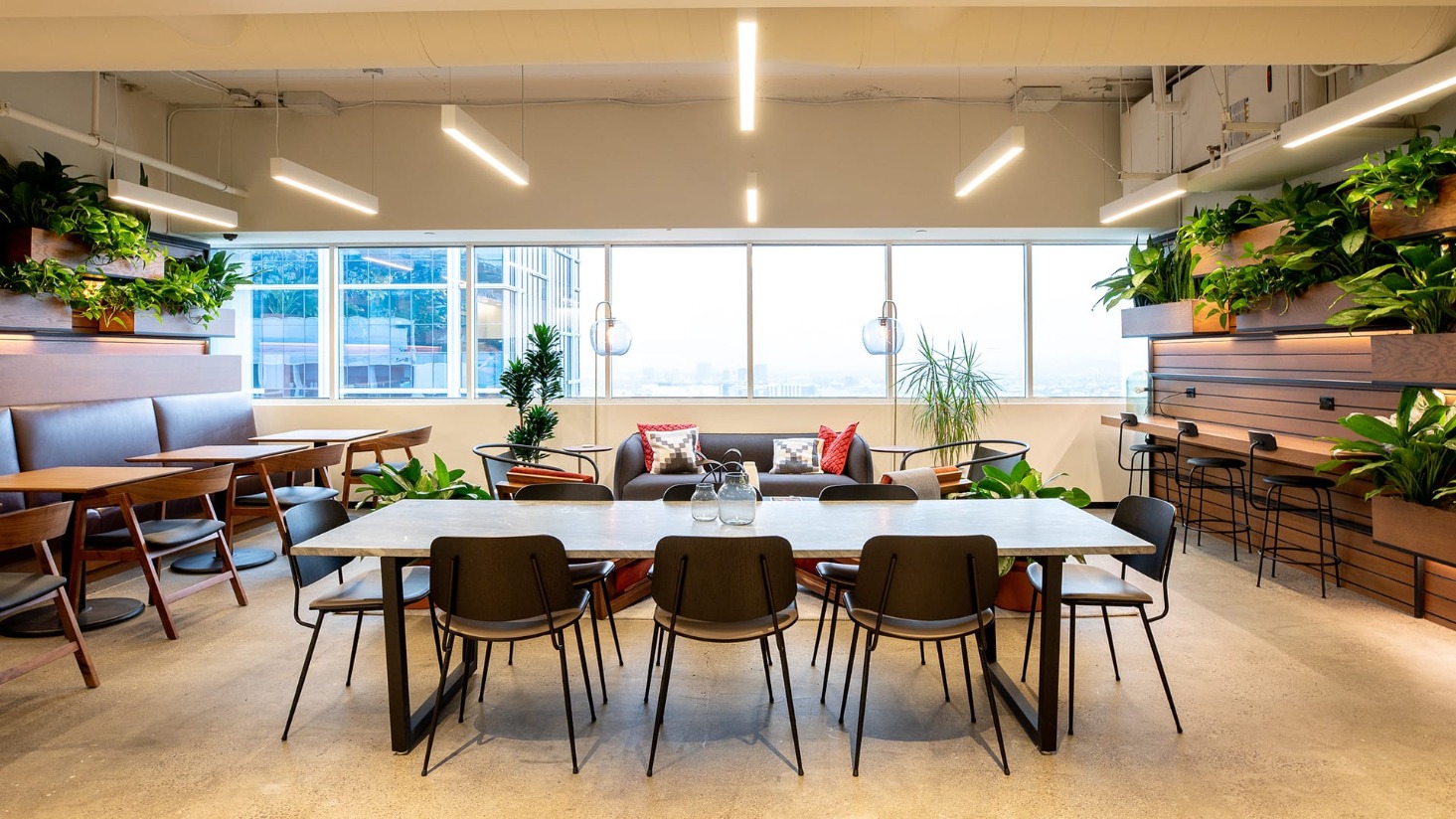Who should purchase lighting for my projects: A general contractor or my company?

Here’s a common dilemma: a company hires a general contractor to oversee a large-scale renovation or new construction buildout, or a series of projects. But when it comes to lighting, the company isn’t sure who should purchase the products.
Are there dedicated in-house resources to tackle purchases? If multiple contractors are making lighting purchases, how do you ensure consistency and take advantage of a national pricing structure?
There is a lot of complexity weaved into this dilemma.
Fortunately, we deal with both scenarios regularly. Both work but they have their respective pros and cons.
Three options for sourcing lighting product
There are three ways you can handle sourcing lighting product:
- Give contractors free rein to source lighting product on their own, from any distributor
- Set up a national lighting purchasing program with a single distributor, through which contractors buy the product
- Purchase lighting product directly from a distributor
Here’s a quick Q&A related to sourcing lighting from a distributor like Regency for a national rollout.
Q: Can Regency setup a consistent spec for multiple contractors to purchase from in order to avoid brand inconsistency?
A: Yes, this is common practice for companies that do not have the in-house personnel resources in place to source product directly from a distributor.
Q: How would a national lighting purchasing program for contractors be set up, exactly?
A: We would set up a spec binder for contractors to purchase from directly. If Regency is designing the layout for each project, then it will be documented and quoted before the contractors even see the fixture schedule. This is recommended as a step to ensure consistency. It also ensures budget and lead time issues are preempted, or at least minimized.
If, however, lighting design is handled by someone other than Regency, we would need to see the bid set of drawings before the general contractors in order to build quotes ahead of time, for each specific job. This process helps us to efficiently manage the progress of each project.
Q: Are there advantages to working with different lighting distributors depending on the regional location of projects?
A: Yes, working with regional commercial lighting distributors could result in some savings on shipping and shortened lead times. But on the flip side, working with different distributors will likely result in variant pricing, higher per-product cost, and inconsistency in product lines. If you’re planning for rollouts in multiple regions and choose to go with a single national distributor, like Regency, you can still get an edge in shipping and lead time by choosing a company with multiple distribution centers.
This is easy for us to say, but we’ve seen things go awry when multiple distributors get involved, or when a contractor is responsible for sourcing lighting. Lamps and fixtures vary from distributor to distributor, based on the relationships each has with manufacturers. Having a set fixture schedule from a single distributor tends to be best if your company won’t be sourcing product directly from the distributor.
Here are the pros and cons of options 2 and 3 above – having either your contractors or a dedicated internal resource order from a single commercial lighting distributor.
Read more: 'Why do lighting projects fall behind schedule?'
Pros and cons of having a general contractor purchase product directly from the lighting distributor
Pros:
- The general contractor is accountable for inventory and tends to be more attentive to the condition and whereabouts of the materials
- Processing change orders and reporting field condition issues is more efficient when the general contractor has a direct line to the distributor
- All discrepancies and change orders are handled between the general contractor and distributor, alleviating day-to-day responsibilities on your end
- All invoicing is performed by the general contractor
Cons:
- One or two additional layers of markup are added to the final cost, inflating your price on the products by 10-30 percent – sometimes even more
- Liens can be passed down to you if the general contractor is delinquent or defaults on payments and you will often need to make special arrangements to guarantee payment, which complicates your agreement with the general contractor
- The credit worthiness and preparedness of the general contractor may negatively effect order timelines
- If problems (delays, bad ordering, etc.) occur, you will lack visibility into who’s responsible – the contractor or the distributor
- The contractor is responsible for warranties, which may be difficult to claim if products fail following project completion
Pros and cons of a company purchasing a lighting package directly from a commercial lighting distributor like Regency
Pros:
- You’ll save cash, as unnecessary markups from general contractors will be eliminated
- You get clear visibility into distributor performance, lead time constraints, and all costs
- You have complete warranty control on long-life items like LEDs, rather than having that registered to the contractor, who may be difficult to track down a year or two after the project is complete
- You get a direct relationship with a distributor’s project managers and support staff
Cons:
- You’re responsible for all day-to-day responsibilities, including ordering and invoicing, which can pile up on bigger rollouts
- When field condition issues and the need to request a change order arises, the process can be far more arduous and multi-layered than when the contractor handles it directly with the distributor
- You will be responsible for managing product inventory and solving for any problems that may occur therein
- Your level of hands-on involvement will result in a bigger time commitment from an internal resource – most often someone on the procurement or construction team
Should you work directly with a commercial lighting distributor?
Deciding the best setup for your situation depends largely on your available internal resources.
Having worked with a large number of companies that have gone down either route, we feel that the best long-term option in most situations is for the company doing the construction to work directly with the distributor to procure lighting product.
As we mention above, this usually means more hands-on work and upfront time commitment, but it is almost certain to reduce overall cost and the potential for headaches down the line.
If, however, your rollout has your personnel swamped or the department that would be responsible for handling such an effort is otherwise in a state of transition, it may be best to outsource procurement to general contractors. Just be sure to set up a consistent spec ahead of time.











